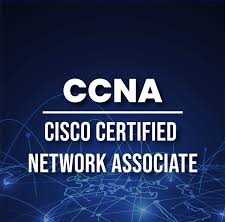
The Cisco Certified Network Associate (CCNA) course is a comprehensive program designed for aspiring network professionals looking to build a strong foundation in networking concepts and Cisco technologies. This industry-recognized certification validates your ability to install, configure, operate, and troubleshoot medium-sized routed and switched networks.
Key Features of Course Divine:
Career Opportunities After (CCNA)Cisco Certified Network Associate:
Essential Skills you will Develop (CCNA)Cisco Certified Network Associate:
Tools Covered:
Syllabus:
Module 1: Networking Fundamentals Introduction to networking concepts Types of networks (LAN, WAN, MAN) OSI and TCP/IP Models Network topology and devices
IP Addressing (IPv4 & IPv6 basics).
Module 2: Ethernet and Switching Technologies Ethernet standards and framing
Switching concepts MAC addressing and ARP VLANs and king Inter-VLAN routing.
Module 3: Routing Fundamentals Static and dynamic routing Introduction to routing protocols (RIP, EIGRP, OSPF) Router configuration basics Routing tables and packet forwarding.
Module 4: IP Addressing and Subnetting Subnetting and VLSM IPv4 and IPv6 configuration Address planning and summarization CIDR notation.
Module 5: Network Access and Infrastructure Switching logic Port security and VLANs Spanning Tree Protocol (STP) Ether Channel and link aggregation.
Module 6: IP Connectivity Configuring routers and routing protocols Troubleshooting connectivity Default routing and administrative distance Path selection and convergence.
Module 7: IP Services DHCP, NAT, and PAT NTP, DNS basics SNMP, Syslog
concepts.
Module 8: Security Fundamentals Device security configuration Secure passwords, SSH, and firewalls Port security, ACLs VPN fundamentals.
Module 9: Automation and Programmability Introduction to network automation
Controllers and APIs Configuration management tools Cisco DNA Center basics.
Module 10: CCNA Exam Preparation Practice labs and simulations
Exam strategies and tips Review of key concepts Sample questions and mock test.
Industry Projects:
Who is this program for?
How To Apply:
Mobile: 9100348679
Email: coursedivine@gmail.com

You cannot copy content of this page